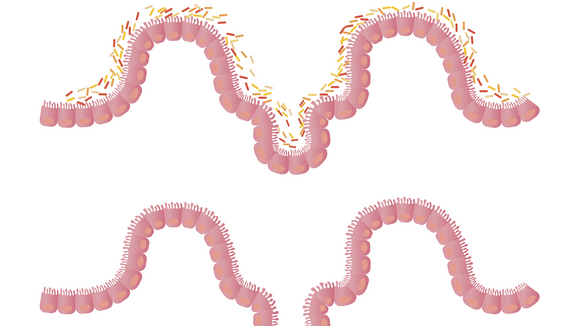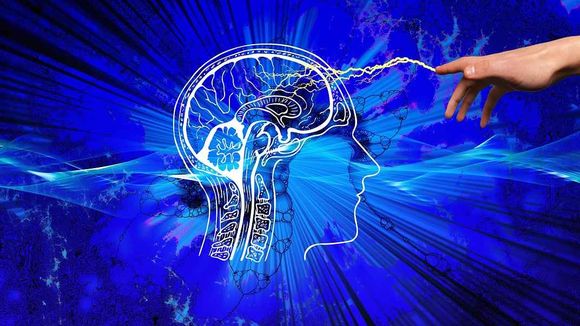What is intermittent fasting?
Intermittent fasting is a food regime, a diet. Several different types are known, but they are summarized under one common idea – a person to eat only within a certain interval of time. Regardless of the different forms that this diet can take, so far there are no significant differences between them on the effects of the body.
This diet is not newly invented— all beings are created with the idea of starving every day. This period of fasting is the time we sleep. By introducing intermittent fasting into our daily lives, we simply prolong this period of time.
There are many clinical and preclinical studies that have been done regarding the effects of this regimen on the body of humans and animals. It turns out that it is not promoted for no reason - many useful changes occur in the body when a person submits to this regime. These changes can be metabolic, immunological, intestinal, in the circadian rhythm of the body, leading, ultimately, to changes in the brain.
What happens when a person begins to starve periodically?
Compliance with this regime affects some of the body's processes and has important effects on brain function.

Metabolic switching
Periodically limiting the energy of our body we induce metabolic switching – the body changes its energy resource from carbohydrates to fats. The main process for generating energy in the body is glycolysis, through which we break down carbohydrates. Glycolysis is the main process because it wastes the least energy compared to other similar processes in the body.
Usually, the first two or three days of fasting are accompanied by another process of energy production, which is extracted from amino acids, but we will not go into detail here.
With intermittent fasting, after two-three days, the body switches to lipolysis – it begins to use stored fat to generate energy because there is no supply of carbohydrates (sugars) – it has no choice but to produce energy and at the same time retain its muscle mass.
Lipolysis as a process is long and divided into many steps, in which various enzymes participate, but its goal is to turn fat into ketone. In the body, usually ketons are a major source of energy for the heart and part of the kidneys. But, when they become the main source of energy for all parts of the body interesting changes are observed, which make a major contribution to brain function:
- Ketons have an indirect effect on genes and lead to stimulation of autophagy - a process in which the body clears waste materials, which are often formed in the brain in neurodegenerative diseases, such as Alzheimer's [ref. 1];
- Reduce the levels of monocytes (a type of immune cell) in the blood and therefore reduce inflammatory processes. In states of epileptic shock, for example, the appearance of monocyte cells in the brain is stimulated, which excites the inflammatory process and damages the integrity of nerve cells. In an experiment, when the access of monocytes to the brain was blocked, the preservation of neurons was notable, indicating that inflammation is the main causative agent of damaged neurons [ref. 2];
- Suppression of the activity of the mTOR protein, which is one of the changes in metabolic switching during intermittent fasting, has anti-inflammatory action. By suppressing the mTOR protein, anabolic processes (synthetic processes) in the body are suppressed accordingly and catabolic (degradative processes) are stimulated. In this case, activation of autophagy and antioxidant processes in the body are observed, which we already know are vital for clearing harmful substances both in the brain and throughout the body;
- In addition, suppression of mTOR leads to the activation of brain neurotrophic factor (BDNF), which promotes synaptic plasticity and the resistance of neurons to stress [ref. 3];
- As a result of metabolic switching, glucose levels and therefore insulin levels are reduced. Low levels of insulin in the blood stimulate neuroplasticity and protect against metabolic and oxidative stress.
Improving circadian rhythm
Circadian rhythm is the process of regulating vital physiological processes (gene transcription, secretion of hormones and proteins) in a 24-hour period depending on whether it is dark or light outside. There is a special area in the brain that is devoted to regulating this internal clock by the reception of light and dark called the suprachiasmatic nucleus (SCN).

In addition, we have secondary circadian fluctuations that are influenced by our lifestyle – when we eat, when we sleep, etc. In the most optimal case, the two circadian clocks work simultaneously to prepare the body for rest or activity. We all know that it is almost impossible to adopt an ideal healthy lifestyle, and it often happens that the peripheral circadian clock is not synchronized with our main internal clock. When this happens constantly, the correct function of some processes is disrupted, leading to an adulterate life.
Intermittent fasting helps with the synchronisation of the two clocks. For example, if we starve in the morning, when insulin levels are normally at their peak, we do not allow further increase in insulin, which would happen if we ate breakfast.
When practicing this type of intermittent fasting, insulin levels for the whole day are reduced and the body's insulin sensitivity increases accordingly (i.e. the body can metabolize glucose without a problem) [ref. 4]. In connection to brain health, this is beneficial because ill glucose metabolism is associated with Alzheimer's, even before the onset of the disease [ref. 5]. Intermittent fasting is beneficial here due to improving glucose metabolism by improving the sensitivity of insulin.
Microbiota-gut-brain
Microbiota we call the population of bacteria that live in our gastrointestinal tract. In recent years, the topic of how microbiota is vital to our physiological and mental health has become increasingly intriguing. There is growing evidence that gut flora directly affects the brain through the so-called axis microbiota-gut-brain. This action manifests itself in several ways:
- Some structural components of bacteria stimulate the immune system. With increased stimulation, for example, due to bacterial dysbiosis, overgrowth of bacteria in the small intestine or increased intestinal permeability, systemic inflammation or inflammation of the central nervous system (CNS) can be obtained. Through intermittent fasting, the activity of the immune system can be reduced, which would prevent systemic and CNS inflammation, preserving brain health [ref. 6];
- Microorganisms send signals to the brain along the vagus nerve, which connects the intestinal nervous system to the central nervous system;
- Microorganisms also produce metabolites that are normally involved in metabolic processes, which we already know are key for our brain's health.

The practice of intermittent fasting indicates an increase in the number of intestinal bacteria and their diversity, and levels of butyrate in the intestinal tract. Butyrate is important for maintaining the integrity of the mucous membrane of the intestine and preventing intestinal permeability. These effects help the normal function of the micriobiota and the axis microbiota-intestine-brain, providing a healthy body and a healthy mind.









